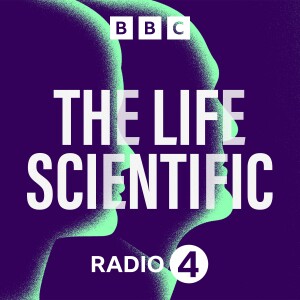
Patricia Wiltshire on how pollen can solve crimes.
 2020-01-07
2020-01-07
Download
Right click and do "save link as"
Patricia Wiltshire grew up in a mining village in South Wales, left home when she was 17 and worked for many years, first as a medical technician and then as a business secretary (a profession her first husband considered to be more ladylike). When she was studying botany A level at evening classes, her teacher encouraged her to apply for university as a mature student. (She would never have considered it otherwise). And so began her career as a palyonologist (studying pollen). She worked for many years reconstructing ancient environments on archaeological sites. But a phone call from a police detective led to a dramatic change of direction, when she was in her fifties. Since then, Pat has been involved in some of the most high-profile murder cases in Britain. The evidence she gave at the Old Bailey helped to convict Ian Huntley, the school caretaker who murdered two ten year old girls in Soham in Cambridgeshire in 2002. She provided evidence for the Milly Dowler murder case in 2003 and the murder of the Ipswich prostitutes in 2006. She tells Jim Al-Khalili about her life scientific and how by studying pollen spores taken from suspects and their possessions, she can establish who’s been where.
Producer: Anna Buckley
Also coming up on The Life Scientific in the New Year.
Myles Allen, an Oxford Professor of Geosystems and the lead author on several IPCC reports on climate change. He describes the system he proposed for separating out human and non-human causes of climate change and assesses some of the claims made by Extinction Rebellion.
Professor Peter Fonagy describes his pioneering theory of ‘mentalization’ (the ability to make sense of our emotional states) and how he created the evidence base for different psychotherapeutic interventions. Therapy saved his life when he was a child refugee who arrived in the UK from Hungary and sparked his interest in the field.
Dr Susannah Maidment shares her passion for dinosaurs. She has spent many months dating rocks in the Morrison Formation in the American mid-West trying to sort out exactly what happened when in . One of the many questions she has tried to answer is why so many dinosaur species evolved from walking on two legs to moving about on four. Quite unlike our own species which evolved from four legged ancestors.
And winner of the 2019 Nobel Prize for physiology or Medicine, Professor Sir Peter Ratcliffe
view more
More Episodes
Dame Carol Black on public health
 2015-10-06
2015-10-06
 1
1
 2015-10-06
2015-10-06
 1
1
Geoff Palmer on brewing
 2015-08-04
2015-08-04
 3
3
 2015-08-04
2015-08-04
 3
3
EO Wilson on ants and evolution
 2015-07-28
2015-07-28
 2
2
 2015-07-28
2015-07-28
 2
2
Niamh Nic Daeid on forensic science
 2015-07-21
2015-07-21
 2015-07-21
2015-07-21
Carlos Frenk on dark matter
 2015-07-14
2015-07-14
 20
20
 2015-07-14
2015-07-14
 20
20
Dorothy Bishop on language disorders
 2015-07-07
2015-07-07
 2015-07-07
2015-07-07
Henry Marsh on brain surgery
 2015-06-30
2015-06-30
 8
8
 2015-06-30
2015-06-30
 8
8
Kate Jones on bats and biodiversity
 2015-06-23
2015-06-23
 3
3
 2015-06-23
2015-06-23
 3
3
Anil Seth on consciousness
 2015-06-16
2015-06-16
 46
46
 2015-06-16
2015-06-16
 46
46
Susan Jebb on nutrition
 2015-04-21
2015-04-21
 1
1
 2015-04-21
2015-04-21
 1
1
Nigel Shadbolt on the worldwide web
 2015-04-14
2015-04-14
 3
3
 2015-04-14
2015-04-14
 3
3
Stephanie Shirley on computer coding
 2015-04-07
2015-04-07
 3
3
 2015-04-07
2015-04-07
 3
3
Jane Francis on Antarctica
 2015-03-31
2015-03-31
 2
2
 2015-03-31
2015-03-31
 2
2
Sarah-Jayne Blakemore on teenage brains
 2015-03-24
2015-03-24
 1
1
 2015-03-24
2015-03-24
 1
1
Matt Taylor on the Rosetta space mission
 2015-03-17
2015-03-17
 6
6
 2015-03-17
2015-03-17
 6
6
John O'Keefe on memory
 2015-03-10
2015-03-10
 1
1
 2015-03-10
2015-03-10
 1
1
Dave Goulson on bees
 2014-11-11
2014-11-11
 2014-11-11
2014-11-11
Dame Sally Davies on public health
 2014-11-04
2014-11-04
 4
4
 2014-11-04
2014-11-04
 4
4
Richard Fortey on fossils
 2014-10-28
2014-10-28
 1
1
 2014-10-28
2014-10-28
 1
1
Margaret Boden on artificial intelligence
 2014-10-21
2014-10-21
 5
5
 2014-10-21
2014-10-21
 5
5
012345678910111213141516171819
Create your
podcast in
minutes
- Full-featured podcast site
- Unlimited storage and bandwidth
- Comprehensive podcast stats
- Distribute to Apple Podcasts, Spotify, and more
- Make money with your podcast
It is Free
- Privacy Policy
- Cookie Policy
- Terms of Use
- Consent Preferences
- Copyright © 2015-2024 Podbean.com


